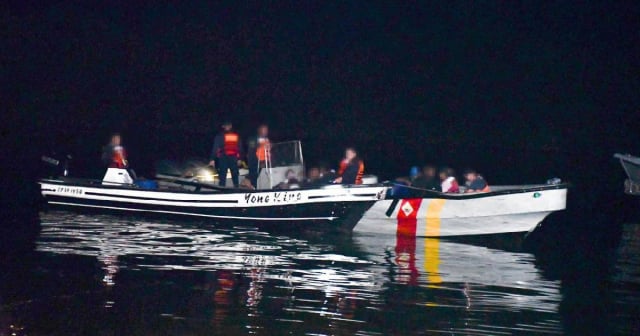Yuriesky Romero Hernández (Pinar del Río, November 25, 1990) survived more than a month at sea, drifting on a precarious raft, eating raw fish and drinking his urine, until he reached the coast of Tamaulipas (Mexico), south of Texas. Along the way, he lost three of the six travel companions who were with him on the journey. Two drowned and the third died of starvation.
After arriving in Mexico, the authorities of this country granted the castaways residency within days. In a week, they crossed into the United States. They were treated like heroes because they endured more than 30 days at the mercy of the waves, in a Cuban raft, without food, without water, and without any of the ships that crossed their path coming to their aid.
His is a chilling story, and now, from Kentucky (USA), he asks the Cubans who are considering doing the same as he did, leaving their children behind, to desist because there are more chances of dying or being sent back than of reaching their destination.
It all started at 10:30 AM on April 5, 2024. For Yuriesky Romero, it was his second attempt at illegal departure. The first time he had failed. While waiting in a wooden shack for the time to board the raft, he saw, through the cracks in the wooden walls, State Security agents who had been alerted to an illegal departure.
As they had planned, Yuriesky Romero and six other men boarded the sailing vessel and attempted to move away from the southern coast of Pinar del Río, near La Coloma. In their attempt to get away from the coast, they asked for help from local fishermen. Along the way, they saw an empty boat heading towards the Cuban coast that returned to the United States loaded with people. They signaled for it to tow them, as the calm sea suggested that the journey would be slow. They had water and food for four or five days.
From the very beginning, they had in mind to reach Mexico, but the Gulf currents diverted them from their goal. The GPS of seven cell phones pointed to different locations; they lost a rudder at night and had to wait for dawn to jump into the sea to install the spare one. It was an odyssey.
The rafters knew they were in open water because cruise ships and container-laden vessels passed by just a few meters away. None made any move to help them. Everyone looked away. No one assisted them.
After more than fifteen days adrift at sea, they saw a buoy, one of those that fishing companies place in the ocean to mark the areas where they fish. Two of the raft's crew members jumped in with life jackets, hoping to reach the buoy and trigger the alarms for someone to come and rescue them. They did so and saw a drone approaching to see what was happening at the buoy they were clinging to amid the waves. However, no one came to help them. The current was so strong that the raft could not get close to where they were, and they also did not have the strength to swim towards the raft. They drowned, buffeted by five-meter waves.
By then, there were four people left on the boat. They ate raw fish whenever they managed to catch something from the sea. As long as they had the strength, they spent the day in the water, holding on to the raft to shield themselves from the sun. They drank their own urine, covering their noses because they had no drinking water left.
But one of the four crew members did not want to eat raw fish or drink urine. Instead, he drank seawater and ate a tube of toothpaste. He looked weak. He died just a couple of days before reaching land. Although throughout the journey they did not see sharks, only dolphins, they feared that if they left the corpse inside the raft, it would decompose quickly in the sun. They had no choice but to throw it into the sea. They saw it drift away because it did not sink.
In the raft, everyone cried. Yuriesky Romero, in an interview granted to CiberCuba, acknowledges that, in his case, he cried because he thought he was close to picking up his son from school and taking him with him on the raft. The child would not have been able to endure the crossing. Just thinking about it made him break down in tears.
Finally, one of those days when he no longer had the strength to even jump into the sea to spend the day in the water to shelter from the sun, one of the survivors saw land. They knew the coast was near because the raft would fill with birds during the day, which then left at dusk.
They arrived at a kind of cay and were assisted by fishermen. Their arrival caused a stir among the Mexican press, and the authorities welcomed them with open arms. A week later, they entered the United States.
Yuriesky Romero now lives in Kentucky. He knows that he has been reborn, and the only thing he can do is recommend to those who are considering it to give up. Not everyone makes it. Not everyone runs their luck.
What do you think?
COMMENTFiled under:
